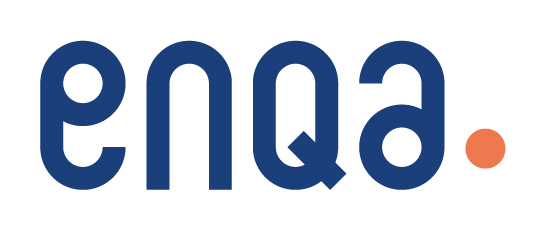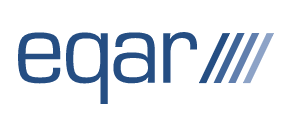 EAEVE is listed in the European Quality Assurance Register for Higher Education
EAEVE is listed in the European Quality Assurance Register for Higher Education

News
Establishments' Status
Table of VEEs' ESEVT and EAEVE Membership status
open
Call for applications
President of EAEVE
Call for applications for the position of President of EAEVE
EAEVE Secretary
Call for applications for the position of EAEVE Secretary
Job description
ESEVT Expert applications welcome
Application Form and Acceptance Procedure
watch the promotional video
Student Expert on an ESEVT Visitation
watch the promotional video
Announcements
Veterinary Educational Researcher's Handbook
The handbook was created in a wide international collaboration, with the aim to support research on teaching, learning and education in the veterinary field.
Available at https://edarxiv.org/dn6e2/
COST action BETTER
(Biosecurity Enhanced Through Training Evaluation and Raising Awareness)
Call for colleagues involved in biosecurity on livestock farms
Please visit the BETTER site and the CA20103 site
ECCVT DT&AI WG Final Report
open
ECCVT press-release about Digital Technologies and the use of Artificial Intelligence (DT&AI)
open
Projects
Erasmus+ VetRepos project
A shared item repository for progress testing in European veterinary schools
Upcoming Meetings
CIQA meeting
28 May 2024
Coordinators' meeting
28 May 2024
ECOVE meeting
29 May 2024
ExCom meeting
21 February 2024
5 April 2024
29 May 2024
General Assembly & Educational Day
30-31 May 2024, Alfort (Paris)
12-13 June 2025, Dublin
User login
Frequently Asked Questions
What impact will Brexit have on how the UK will recognize my veterinary degree which was obtained in a European country?
According to this page on the Royal College of Veterinary Surgeons’ (RCVS) website, veterinarians from EAEVE-approved or accredited schools may apply to register with the RCVS, provided their Veterinary Education Establishment (VEE) was approved or accredited at the time that they gained their qualification. In any case, it is recommended to contact the RCVS to know the latest requirements.
What impact will Brexit have on how European countries will recognize my veterinary degree which was awarded by a VEE in the UK?
On 31 October 2019, a Mutual Qualification Recognition Agreement between the RCVS and the VCI was signed by the respective Presidents of the two regulatory bodies. This agreement means that the degree in veterinary medicine from University College Dublin can be recognised by the RCVS, and the current eight RCVS-recognised UK veterinary medicine degrees can be recognised by the VCI. This Mutual Qualification Recognition Agreement was the first agreement of its kind signed on a bilateral basis between the United Kingdom and another country in the European Economic Area (EEA).
For all other European countries, it is recommended to contact the relevant Veterinary Statutory Body (VSB) of the country in which you would like to practice, or the responsible national licensing/regulatory body. This page on the European Commission’s website contains a database of all those professions regulated under the 2005/36/EC and 2013/55/EU and can be filtered according to the country. This page on the European Board of Veterinary Specialization (EBVS) also contains some useful information and links for each European country.
What would be the process of getting accredited in Europe if I went to a vet school in the US or New Zealand?
The regulation of the veterinary profession is a national competency, and there is no blanket policy in the European Union which applies to all European countries. It is recommended to contact the relevant VSB or the responsible national licensing/regulatory body to know their specific requirements.
If I graduate from a VEE which is not a member of EAEVE, will my degree be recognized in another country?
A VEE can request membership within EAEVE by following due procedure. Being a member of EAEVE means that the VEE intends to enter the evaluation system provided by the ESEVT process. In order to become a Full Member of EAEVE, a VEE must be approved/accredited or conditionally approved/accredited by ESEVT after undergoing a full Visitation, which means that it is compliant (or partially compliant) with all ESEVT Standards. The European Committee of Veterinary Education (ECOVE) is responsible for making a final verdict on the outcome of a Visitation. A status of “Accreditation” does not mean that a VEE’s graduates are automatically allowed to practice veterinary medicine everywhere in Europe since the ability to practice as a veterinarian is a national competency and the conditions to access the veterinary profession may vary from one country to another. Therefore, it is recommended to check the exact requirements with the relevant VSB or national licensing/regulatory body.
If I graduated in July 2020 from a VEE which is non-accredited by EAEVE after undergoing a full Visitation in February 2020, but upon a Re-Visitation in February 2021, this VEE achieves accreditation, what does that mean for the accreditation status of the VEE from February 2020 – February 2021?
In line with the ESEVT SOP, Accreditation is valid for 7 years from the date of the full Visitation, and not the date of the Re-visitation. So in this case, the Accreditation status of the concerned VEE would be valid from February 2020 until February 2027.

